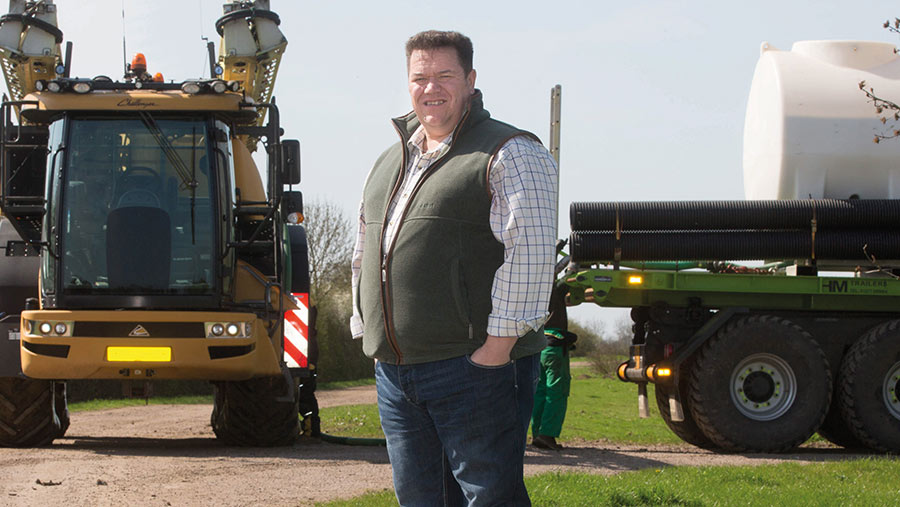Farmer Focus: New muck spreader for in-crop compost spreading
 © Tim Scrivener
© Tim Scrivener Covid-19 finally caught up with me and Mrs C, and firmly put us out of action for seven days.
Our assistant farm manager also fell ill with Covid, leaving us with a skeleton staff for the best weather window so far this spring.
I have to say thanks to them for getting the spring barley drilled in still less-than-favourable conditions.
See also: Fermenting organic matter better for soil health than composting
Receiving 30mm of rain 10 days earlier had not only spoilt any frost mould but also kept soil temperatures down, so seed-bed conditions were at best average and, with no wind, didn’t show any signs of improving.
We are very fortunate in that we farm in a mixed farming area and have a number of straw-for-muck deals with neighbours.
This is a relatively new venture for us and the management of this vital resource came under review over the winter.
Historically, it has been spread in the autumn in front of wheat crops, but for the first time this year we are in-crop spreading.
We’ve just purchased a new Rolland muck spreader with a wide-spread spinning deck, and a composting kit, with the intention of composting the product before application.
What’s already amazing me is how fast the composition of the muck changes with rapid breakdown of any straw.
It feels like we are at the very start of an interesting project with potential for blending products within the composting process, and although it certainly won’t replace artificial fertilisers any time soon, its going to be a step in the right direction.
Like a lot of you, I’m sure, I’ve been trying to get my head round the viability of combinable cropping with input prices at current levels. It is all very scary reading.
While the potential for the current cropping year is good, the following years are potentially disastrous with cashflow requirements at completely unprecedented levels, and what makes it feel really scary is the lack of understanding from the government.
I suspect a lot of farmers will be subsidising food production for the next few years as they hope to return to profitability at some point.


